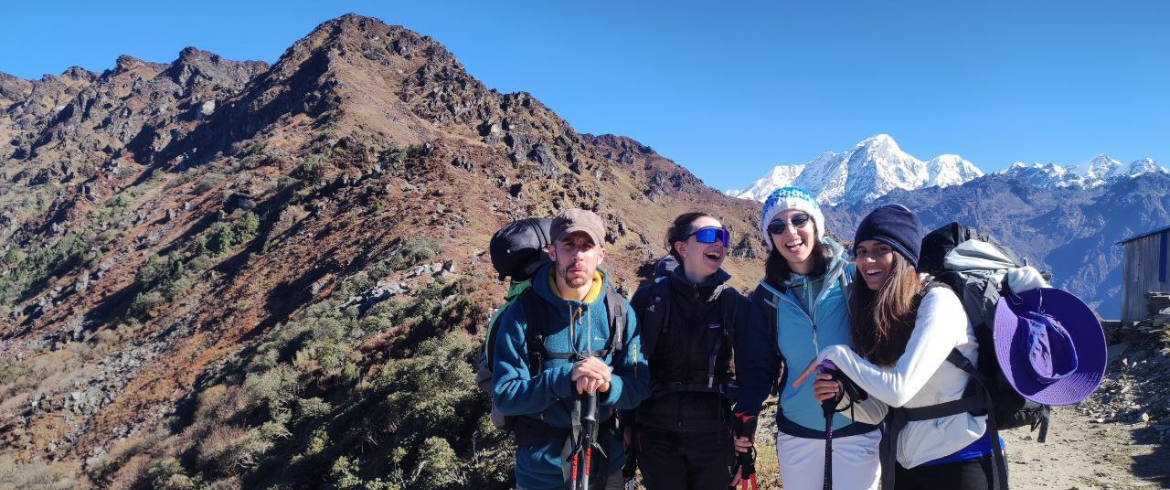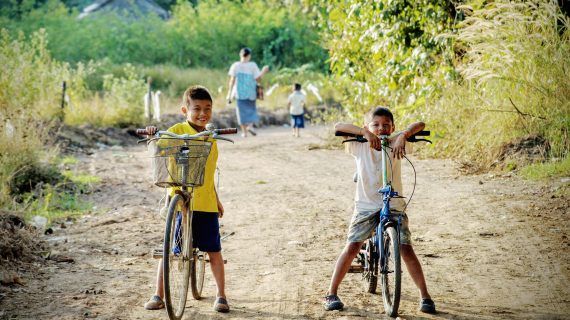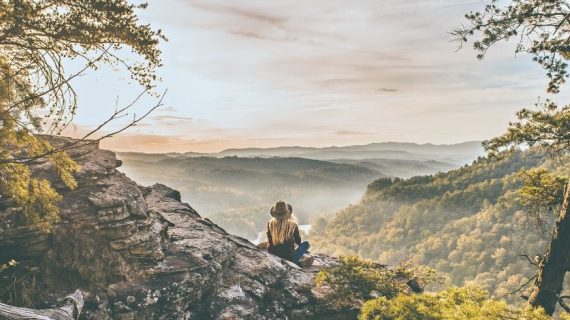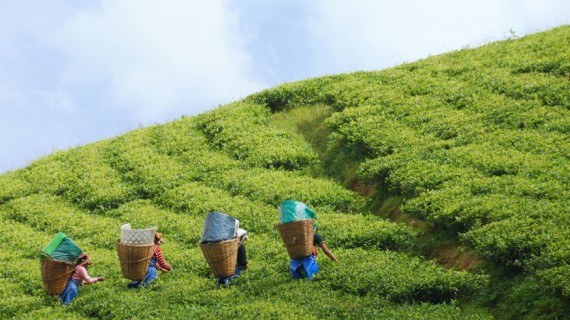Authentic experiences and green itineraries… Here is Nepal told by Marco, Virginia and Arianna.
In September 2022, four students from the University of Trento attending the master’s degree course in Sustainability and Tourism Management left for Nepal for an internship at a local travel agency. At Ecobnb we interviewed three of them, Marco, Virginia and Arianna, to learn more about their experience in this magnificent country.
1. What exactly was your experience and what were the objectives of your internship?
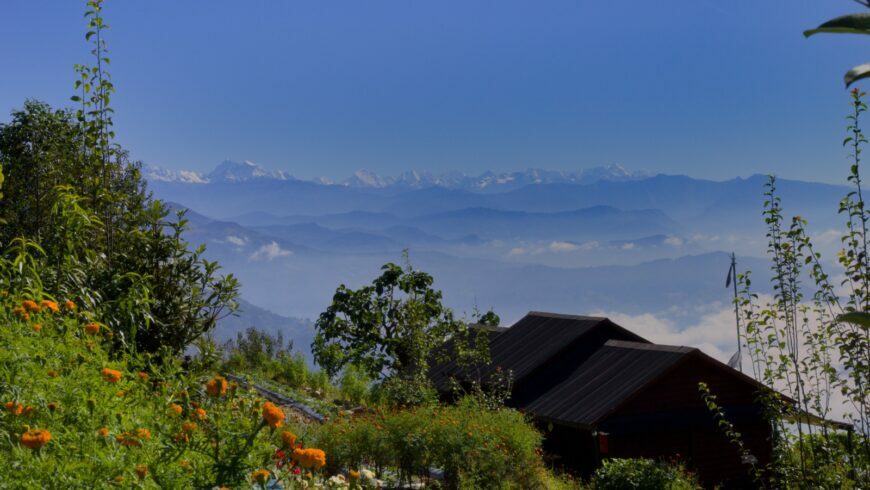
Marco. We are students of the University of Trento’s Management of Sustainability and Tourism. We are here as interns for Garima Voyage Travel & Tours, a tour operator run by Federica and Rabindra, two ambitious people who believe in a sustainable tourism development project in Nepal. Among the various work to support the activity of the tour operator certainly stood out the work for the certification of sustainable destination of Melamchi and Panchpokhari. A long-term project that is just beginning, very challenging in a country like Nepal. Each of us had a different field of expertise related to our thesis research work. I focused on risk management and environmental disaster mitigation.
Virginia. I have dealt more with the documents related to homestays (a particular form of accommodation very common in Nepal), such as the guidelines for their registration on social media and the creation of customer feedback system. A database has also been updated in which the homestays mapped in vare zones are inserted. After that a report was made to the municipality on the conditions of these homestays with respect to the achievement of the certification objectives.
Arianna. The goal behind our work is to achieve a sustainable certification of destination, that requires interventions of all kinds. I, in connection with my thesis work, have been concerned to highlight the obstacles that have been found in the process. At the same time I curated the social channels of the tour operator. I participated, together with the rest of the team, in the process of mapping and data collection especially in relation to homestays in the Panch Pokhari area.
2. What did you like most and what less than your experience?
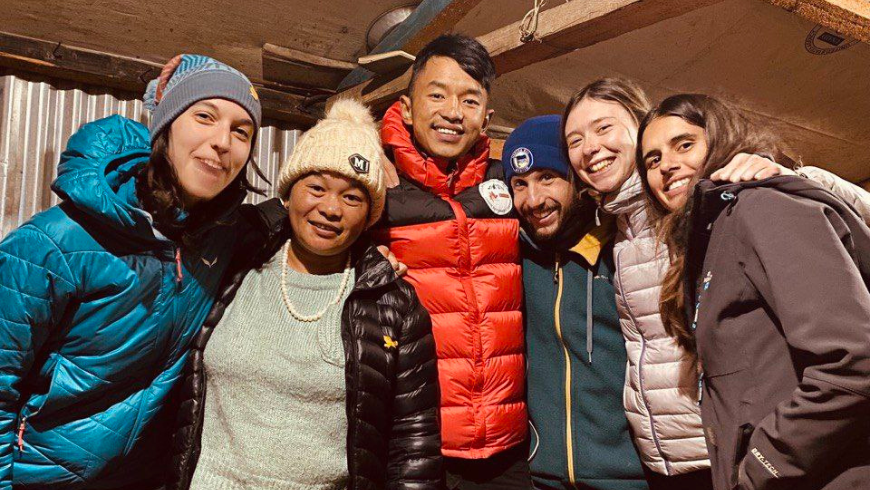
Marco. Of the Nepalese I enjoyed the calm. From them things are often planned a little as it comes, and if they work well otherwise peace. Transportation is a mystical experience of inconvenience, certainty that something will happen to make you arrive late, discouragement and despair. I can’t say I’ve gotten used to it, bus trips are really challenging. But I learned the calm calm of the Nepalese towards the passing time and the inconvenience. Apart from some individuals out of the ordinary none of them is in a hurry. It seems that time does not flow and if today you do something you will do it tomorrow, what’s the problem?
What I didn’t like, instead is the confusion. The prevarication of personal spaces and the perception that it is difficult to be able to be with yourself without someone harassing you with seemingly useless questions, without a horn that wakes everyone up at six in the morning, pollution or the crowding of a bus. The Nepalese are loud, noisy and always super active. I appreciate the silence, even in the cities. Sometimes it’s really hard not to lose your cool in all this chaos.
Virginia. I think the most interesting part was to get to know many Nepalese people at work, to fully understand their culture and their kindness. Many of them are very committed to achieving goals that in a difficult country like this are really far away, but they do not give up and they do it all despite the difficulties. We introduced ourselves to their culture and felt part of them. In the workplace it is very difficult to coordinate with them, they do not have the knowledge of the time or to respect the commitments made. They are very different from us hectic Westerners in this regard, they do things calmly and sometimes they don’t think about the consequences. It is still difficult to handle things here. It takes a lot of patience, a lot of calm and endurance many times.
Arianna. It’s really hard to answer this question because there are many aspects of Nepal that I hated and loved at the same time. For example, the conception they have of time is really very different from the western one. There is no frenzy in the Nepalese rhythms, and this is an aspect that has given me a lot of tranquility and allowed me to get out of that mechanism that made me feel constantly late. At the same time, when the schedules or even the days set for the meetings were not respected, it was often unnerving. Surely I really appreciated the great humanity and the desire for socialization of the Nepalese. The conversations on the buses with people just met and to help you without ulterior motives have helped many to have more confidence in the next.
The organization, however, was one of the things that put me to the test. Knowing that I have to go away for a few days or that I have to attend a conference just a few hours before the event is a totally out of my way.
3. What was the most beautiful moment of your experience?
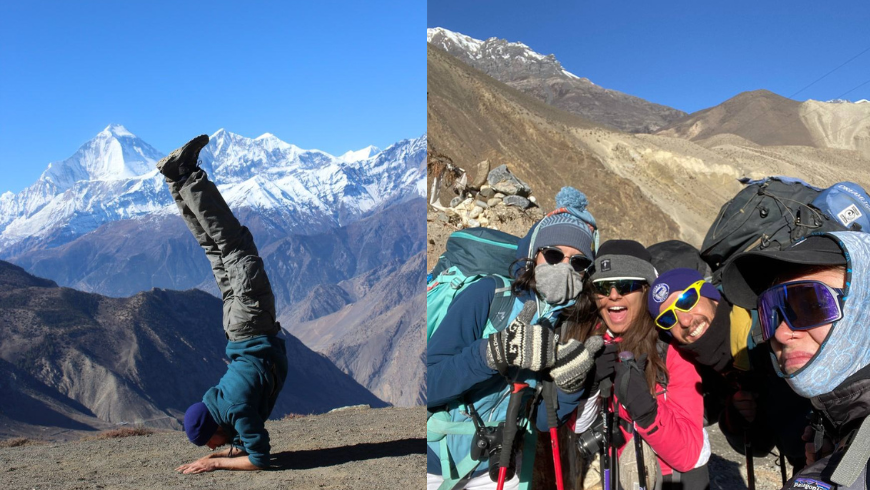
Marco. I participated in a mountaineering expedition together with Garima Voyage. In short, the expedition proposed to open a new route on Ganchenpo, a mountain 6378 meters high. I often go to the mountains and often do vie ferrate, but I didn’t feel prepared for this experience. However, the classic Nepalese optimism convinced me that it was something perfectly within my reach.
There were some internal dynamics that put me on edge that I didn’t expect. Several times I thought that maybe it was better for me not to attempt the summit. This threw me down because I had invested a lot of money and dreamed a lot about this unique experience. One day I decided to venture into a path that was confused between rocks, snow and dry streams. Immersed in the low clouds losing myself in a place I did not know and savor the essence alone. Unexpectedly the clouds opened and I reached a plateau with a spectacular view. There I remember accepting the possibility of not climbing to the summit with serenity. After all it was a wonderful journey even so.
Virginia. There were so many difficult moments that we shared together as a family. The experience during the expedition for the opening of the Ganchempo summit was very intense. One of the strongest experiences, there was the fatigue of walking, stress, many problems that have arisen. But the beauty of the views, the kindness of the Nepalese guides and carriers who lit the fire to warm us or when they brought us tea at six in the morning. People for me were the most beautiful thing that really made a difference.
Arianna. One of the most beautiful moments I experienced during the exploratory expedition on top of Ganchenpo. Although I did not finish the project because of some objective obstacles, I learned a lot in the few days. The atmosphere created during this journey has created many links, despite the communication obstacles. Live several days completely out of the world, for the lack of telephone network. This allowed me to fully enjoy the experience and the opportunity to get to know myself better. Sides of my character emerged that I had repressed over time, or that I didn’t know I had.
4. What will you never forget about this experience?
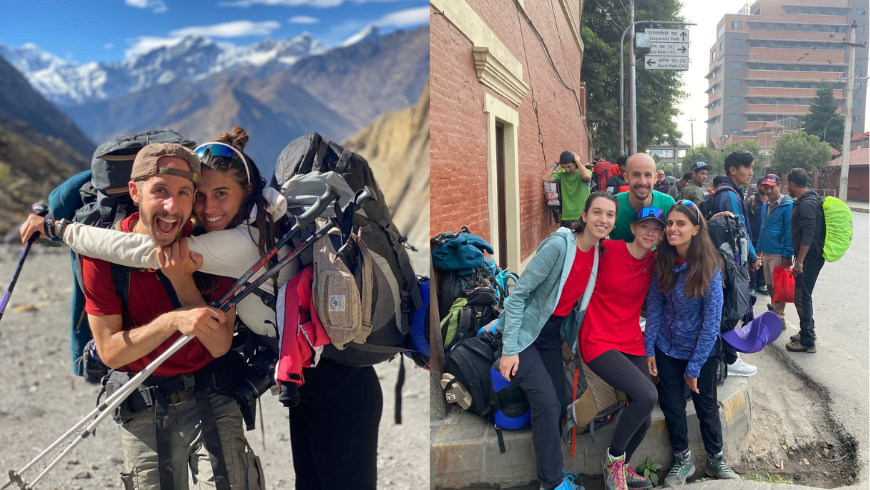
Marco. If I tried to climb the Ganchenpo a hundred times I might be able to climb to the top four or five of these. It was definitely not a journey within my reach, especially counting the way the Nepalese team faced the climb, leaving me plenty of autonomy. I stopped around 5800 meters, destroyed by the lack of oxygen and the cold wind at 4 am. Yet when I came down, the feeling of failure didn’t hurt me as much as I’d imagined.
I really realized that there are bigger things than me that I’m not ready to do. I’ve learned to accept my limitations much better. Of course, my Nepalese friends told me that one day we’re going to try to ride it together. Honestly I don’t care to try again, even if the memory of fatigue fades quickly I remember rationally what I thought: what is the need to suffer so much to get to the top? It may be a silly thought, but the mountains are also beautiful from below.
Virginia. Like I said before people but I would like to add children as well. We went to visit schools and the children are wonderful, they have nothing, but as soon as they see you they are very curious to understand who you are from where you come from, they are very affectionate. We cannot forget the landscapes we saw, both during the expedition and during our journey in the Mustang. We’ve seen some surreal landscapes and some of the highest mountains in the world.
It’s a very strong emotion that’s hard to explain. It’s a country that you hate at first, you don’t understand, because far away from Western standards. Then you adapt, you endure, and you get used to seeing things you never thought you’d see in life. Surely also the many poverty that there is. But then it gives you so much and you love it, it remains in your heart and you can never forget it.
Arianna. I go home absolutely satisfied with this experience. It gave me a considerable boost to a personal change that was already underway for some time. In these three months I have definitely reviewed my way of dealing with life and the events that follow. I have learned to pay a little more attention to the positive aspects of things. I’ve learned that everyone has their own timing. Often the race to the goal only makes it more stressful a path that has the potential to be wonderful. I also learned, in part, to measure my limits, something I’ve never been able to do. And I also discovered that, in all likelihood, among my ancestors there is a Nepalese. That’s because in three months here was not a day when I didn’t hear myself say at least once “you look like Nepali”.
5. Possible scenarios of sustainable tourism development in Nepal
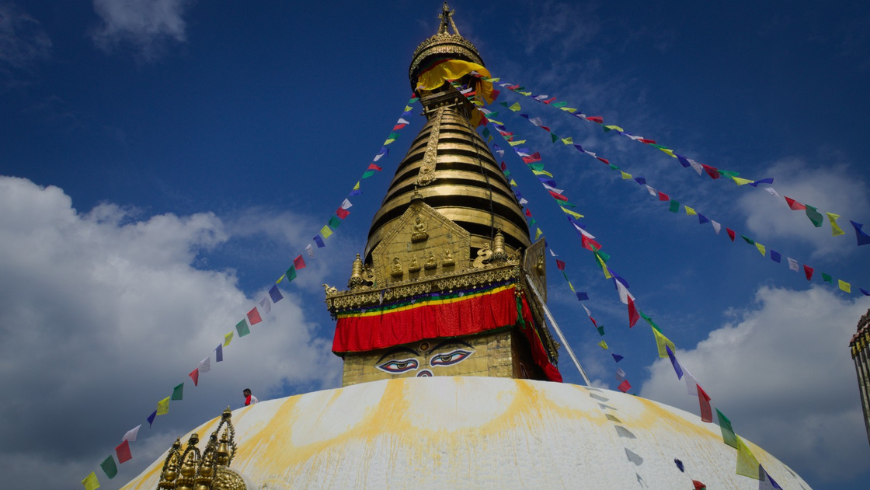
Nepal is still a very poor country, lacking funds for tourism initiatives, and many places lack a vision. However, the culture of hospitality is strongly rooted in the territory and Nepalese do not lack initiative. In the future, it will be a question of teaching local people the concepts of sustainability that are often lacking at grassroots level.
It will be important to differentiate geographically the tourist offer to avoid the overtourism that is already distorting some places such as the Everest area or the Annapurna Circuit. It is important to note that extra-continental tourists are those who come here for trekking, while from the SAARC area mainly arrive pilgrims. The latter use jeeps and buses to reach even very high villages, polluting (even acoustically) and making disappear the original frugality and rurality of some places. We believe there is much to work on the mentality of local tourists.
